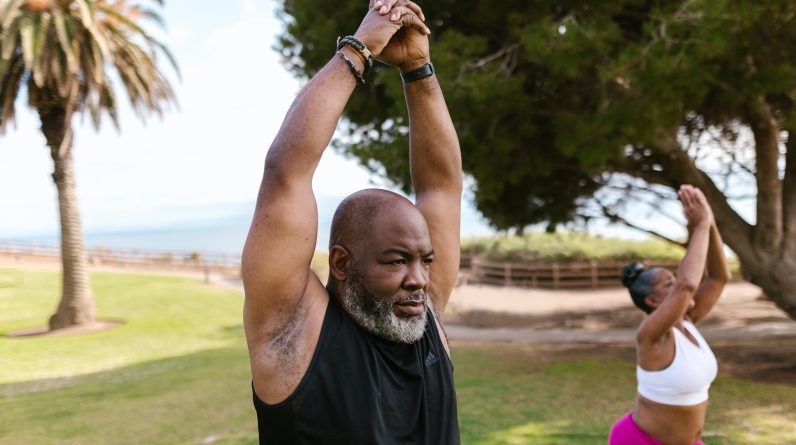
Exploring the Mind-Body Connection: The Interplay Between Physical Fitness and Mental Fitness
Physical fitness and mental fitness are two vital components of overall well-being. While physical fitness refers to the state of one’s physical health and the ability to perform physical activities, mental fitness encompasses mental well-being, emotional resilience, and cognitive abilities. The relationship between these two aspects of fitness is intricate and mutually influential. Research has consistently shown that a strong correlation exists between physical fitness and mental fitness, highlighting the profound impact each has on the other.
Engaging in regular physical exercise has been proven to have significant benefits for mental health. Exercise promotes the release of endorphins, commonly known as “feel-good” hormones, which help alleviate stress, reduce anxiety, and improve mood. It also increases the production of neurotransmitters like serotonin and dopamine, which play crucial roles in regulating mood and emotions. Consequently, individuals who exercise regularly often experience reduced symptoms of depression and anxiety.
Overall Brain Health
Physical fitness also enhances cognitive function and boosts overall brain health. Exercise increases blood flow to the brain, delivering oxygen and nutrients necessary for optimal brain function. It stimulates the growth of new neurons in the hippocampus, a region associated with learning and memory. Moreover, physical activity improves executive functions such as attention, problem-solving, and decision-making. Studies have indicated that students who engage in regular exercise perform better academically due to enhanced cognitive abilities.
Furthermore, physical fitness positively impacts mental fitness by promoting better sleep patterns. Quality sleep is vital for mental well-being, as it allows the brain to rest, consolidate memories, and recharge. Regular exercise improves sleep duration and quality, reducing the risk of sleep disorders and enhancing overall mental performance.
On the other hand, mental fitness plays a significant role in motivating individuals to engage in physical fitness activities. A strong and resilient mind helps individuals overcome barriers, set realistic goals, and maintain the discipline required for regular exercise. Mental fitness fosters self-confidence, self-efficacy, and a positive mindset, all of which contribute to successful adherence to a physical fitness routine.
Moreover, mental fitness can enhance physical performance by increasing focus, concentration, and motivation during exercise. Athletes and sports professionals often engage in mental training techniques such as visualization, goal setting, and mindfulness to improve their physical performance. By strengthening their mental fitness, individuals can push past physical limitations and achieve their fitness goals.
The relationship between physical and mental fitness is not limited to exercise alone. A balanced and nutritious diet, essential for physical fitness, also has a significant impact on mental well-being. Nutrients like omega-3 fatty acids, B vitamins, and antioxidants have been linked to improved cognitive function and a reduced risk of mental disorders. Similarly, maintaining a healthy weight through physical fitness and a nutritious diet can enhance body image and self-esteem, positively impacting mental health.
Why does exercise make us feel better, mentally?
Exercise has a profound impact on our mental well-being, and there are several reasons why it makes us feel better mentally:
Endorphin release: When we exercise, our bodies release endorphins, which are neurotransmitters that act as natural painkillers and mood elevators. Endorphins can induce feelings of euphoria, reduce stress, and alleviate symptoms of anxiety and depression.
Stress reduction: Exercise is a powerful stress reliever. It helps to reduce the levels of stress hormones, such as cortisol, and increases the production of neurotransmitters like serotonin, which plays a crucial role in regulating mood. Regular physical activity can improve your ability to cope with stress and enhance overall resilience.
Improved sleep:
Exercise can enhance the quality of sleep, leading to better mental well-being. It helps regulate the sleep-wake cycle and promotes deeper, more restful sleep. Sufficient rest can positively impact mood, cognitive function, and emotional stability.
Brain chemicals and neural growth: Physical activity stimulates the release of various brain chemicals, including dopamine and norepinephrine, which are associated with improved mood and increased focus. Exercise also promotes neuroplasticity, the ability of the brain to reorganize and form new connections, which can enhance cognitive function and improve mental well-being.
Enhanced self-esteem and self-confidence:
Engaging in regular exercise and physical activity can improve self-esteem and self-confidence. Achieving fitness goals, feeling stronger and healthier, and noticing improvements in physical appearance can boost self-image and promote a positive outlook on life.
Social interaction: Many forms of exercise provide opportunities for social interaction and connection with others. Engaging in group activities, team sports, or exercise classes can foster social support, decrease feelings of loneliness, and contribute to a sense of belonging, all of which have a positive impact on mental health.
How to get started with mental exercise
Engaging in mental exercises is a great way to keep your mind sharp and enhance cognitive abilities. Here are some steps to get started with mental exercises:
Set goals: Determine what you want to achieve through mental exercise. It could be improving memory, enhancing focus, boosting creativity, or developing problem-solving skills. Setting clear goals will help you stay motivated and focused.
Learn something new: Challenge yourself by learning new skills or acquiring knowledge in areas that interest you. This could involve reading books, taking online courses, or attending workshops. Learning stimulates your brain and helps create new neural connections.
Solve puzzles and brain teasers:
Engage in activities like crossword puzzles, Sudoku, jigsaw puzzles, or logic games. These activities stimulate different areas of your brain and improve problem-solving and critical thinking skills.
Practice mindfulness and meditation: Mental exercises don’t always have to be focused on active thinking. Practicing mindfulness and meditation can help improve focus, reduce stress, and enhance overall cognitive abilities. Find a quiet place, sit comfortably, and concentrate on your breath or use guided meditation apps.
Play strategic games: Engaging in strategic games like chess, Scrabble, or strategic video games can challenge your mind and improve cognitive functions such as planning, decision-making, and problem-solving.
Engage in creative activities: Activities such as drawing, painting, playing a musical instrument, or writing can boost your creativity and engage different parts of your brain. These activities encourage you to think outside the box and develop new perspectives.
Socialize and engage in discussions: Engaging in meaningful conversations with others can stimulate your mind. Participate in group discussions, join clubs or organizations, or even engage in online forums and communities to share ideas and perspectives.
Stay physically active:
Regular exercise has been linked to improved cognitive function. Engaging in aerobic activities like walking, jogging, swimming, or cycling increases blood flow to the brain and promotes the growth of new neurons.
Practice memory exercises:
Challenge your memory by memorizing phone numbers, lists, or poems. Play memory games or try activities like recalling details from your day or visualizing past events in detail. These exercises can improve your memory and cognitive recall.
Maintain a healthy lifestyle: A healthy lifestyle contributes to overall brain health. Get enough sleep, eat a balanced diet, and stay hydrated. Avoid excessive stress, limit alcohol consumption, and avoid smoking.
In conclusion, physical fitness and mental fitness are closely intertwined, influencing and reinforcing each other. Engaging in regular physical exercise not only improves physical health but also has profound benefits for mental well-being, including reduced stress, improved mood, enhanced cognitive function, and better sleep patterns. Meanwhile, mental fitness plays a pivotal role in motivating individuals to maintain physical fitness routines, enhancing focus, concentration, and resilience. Recognizing and nurturing the relationship between physical and mental fitness is essential for achieving holistic well-being and leading a fulfilling life.






